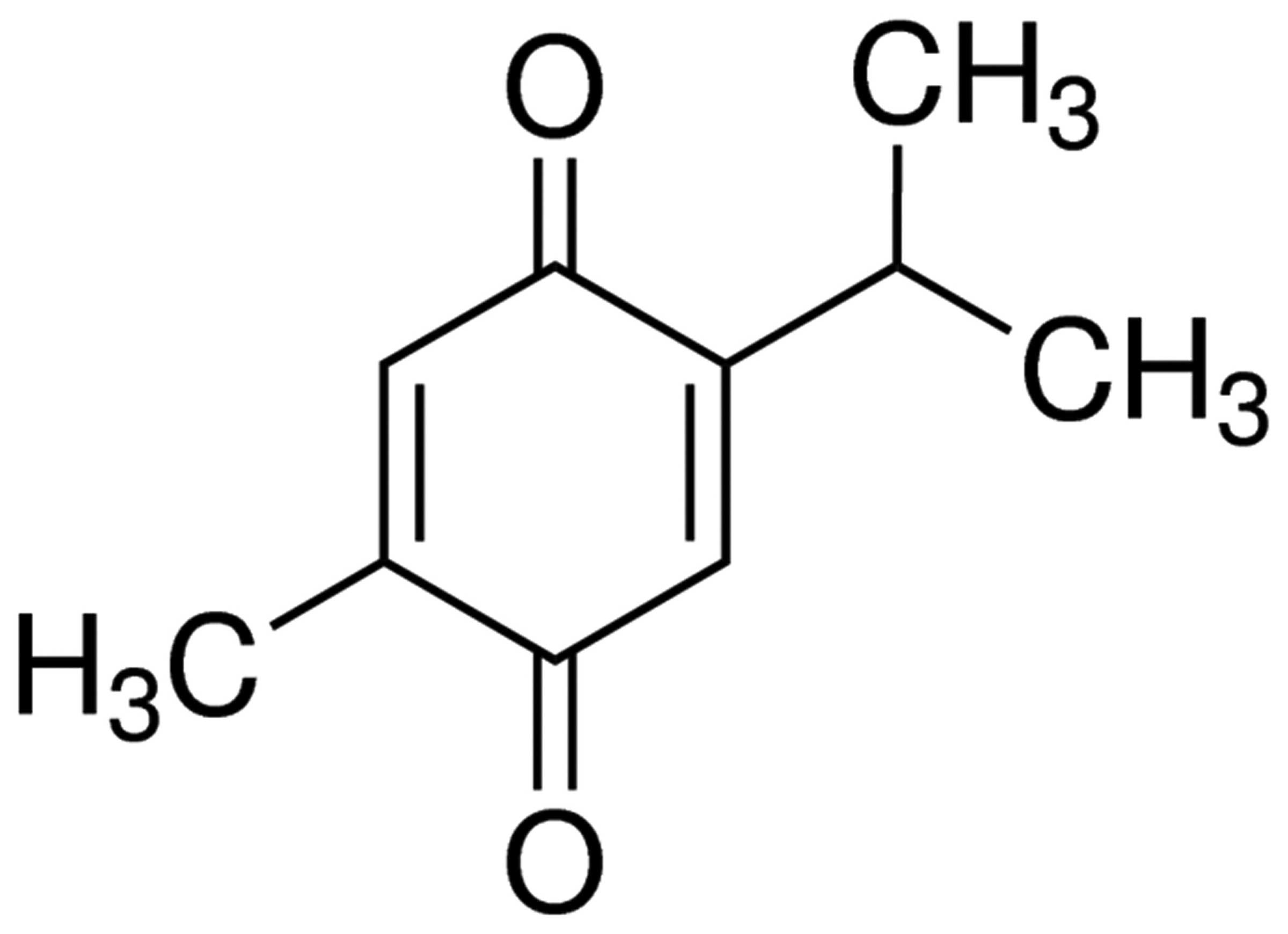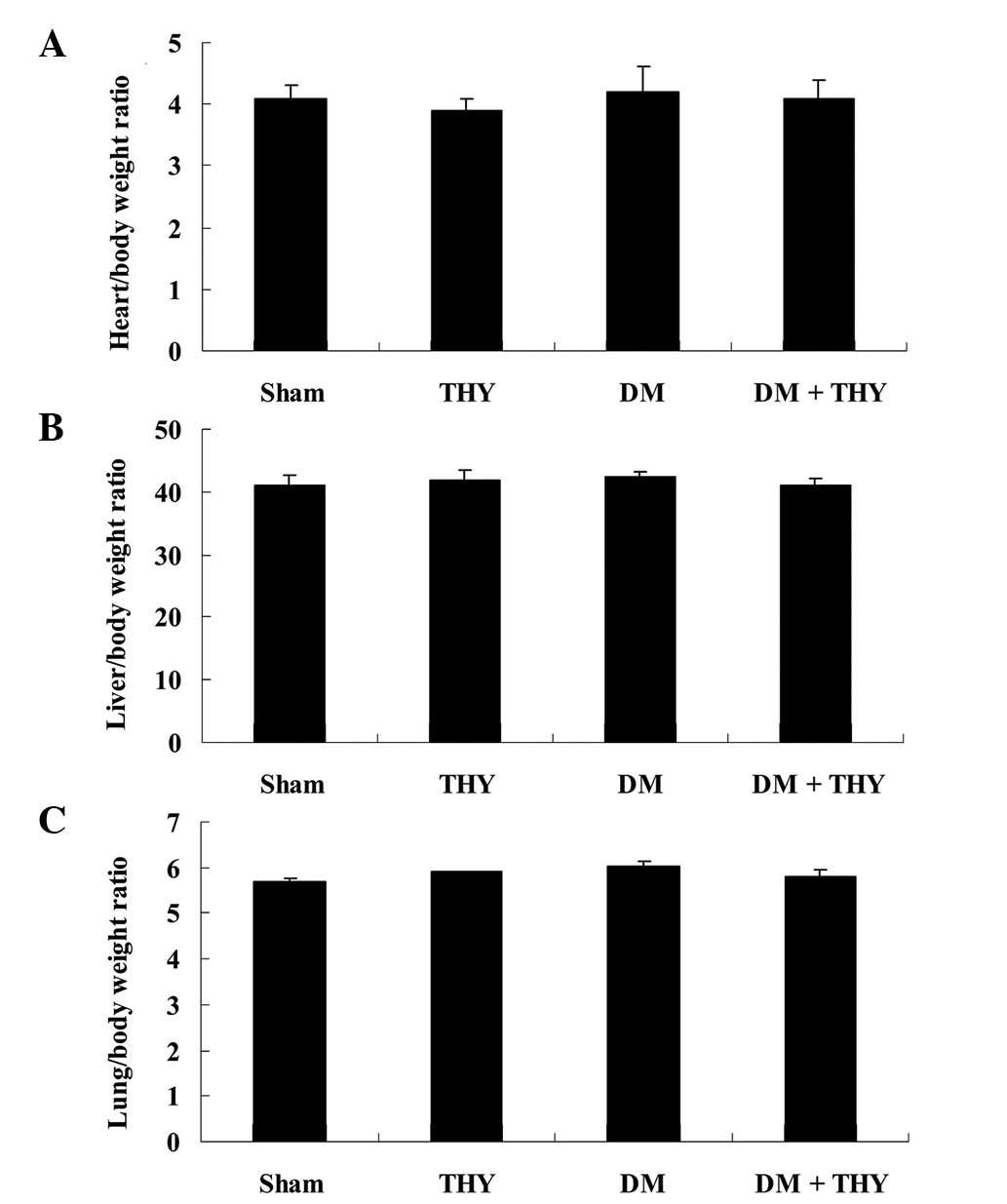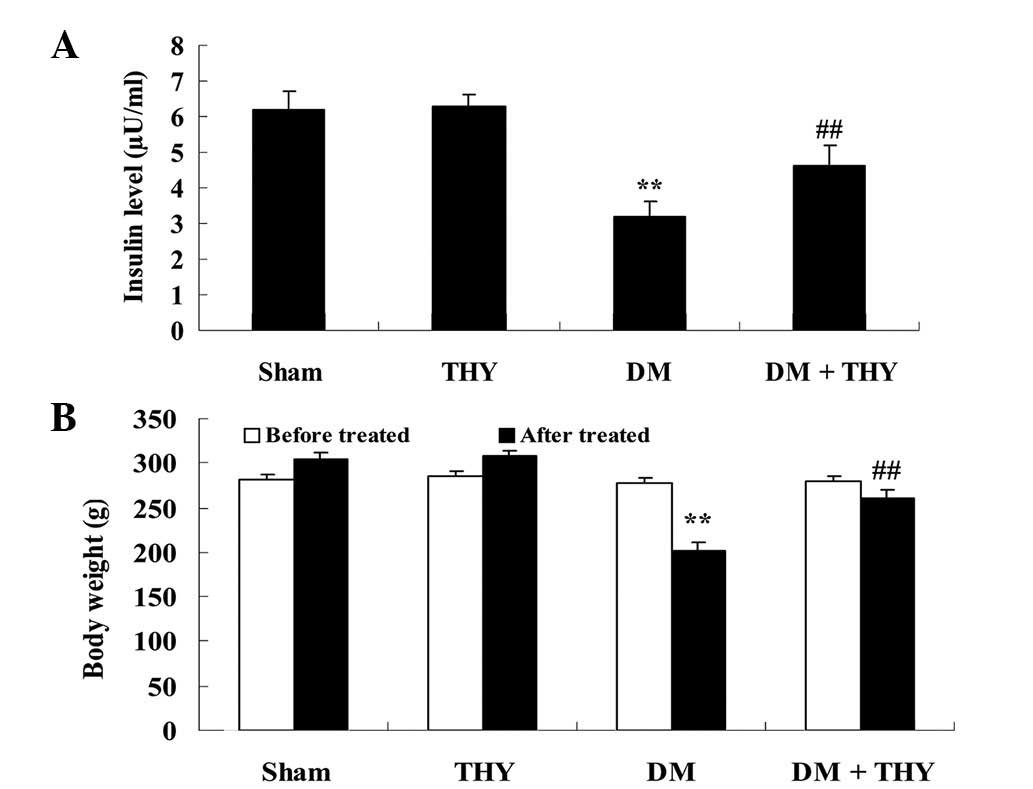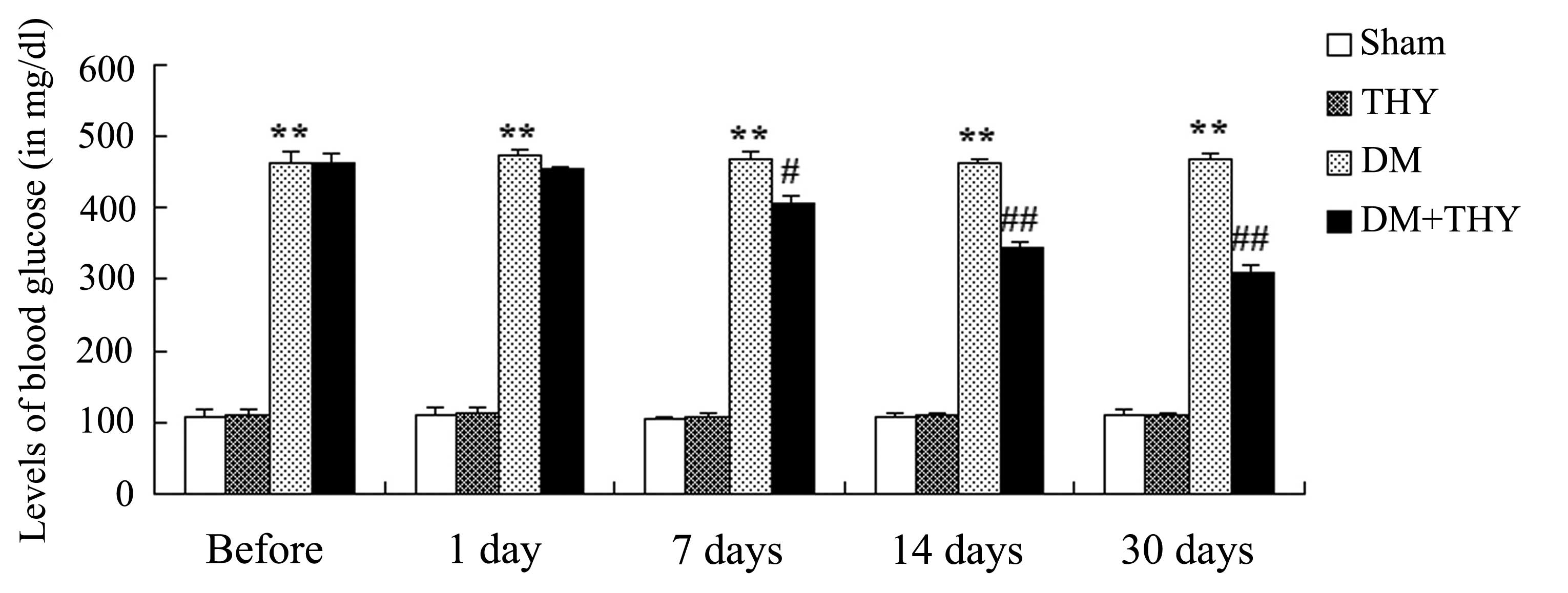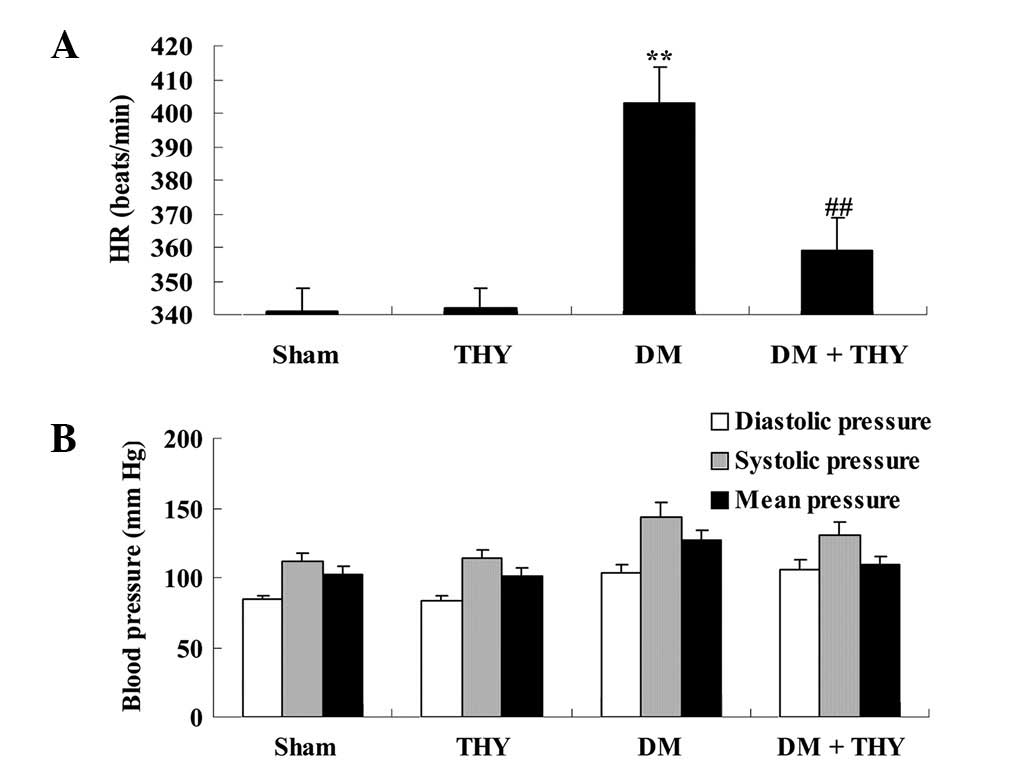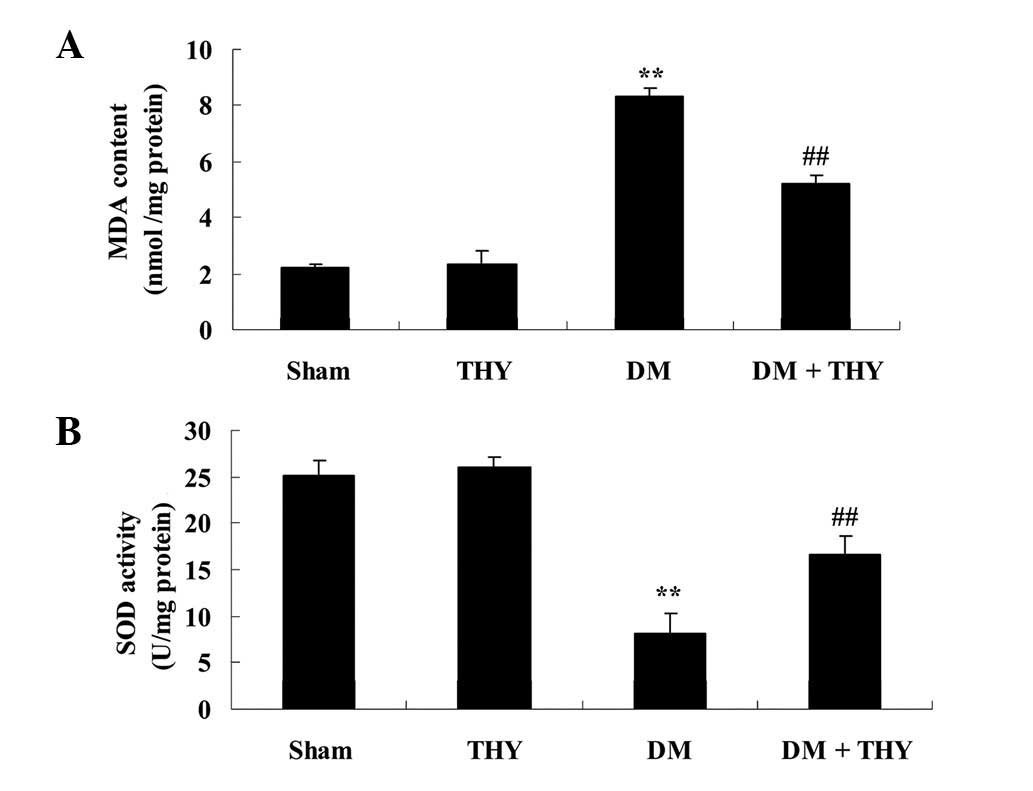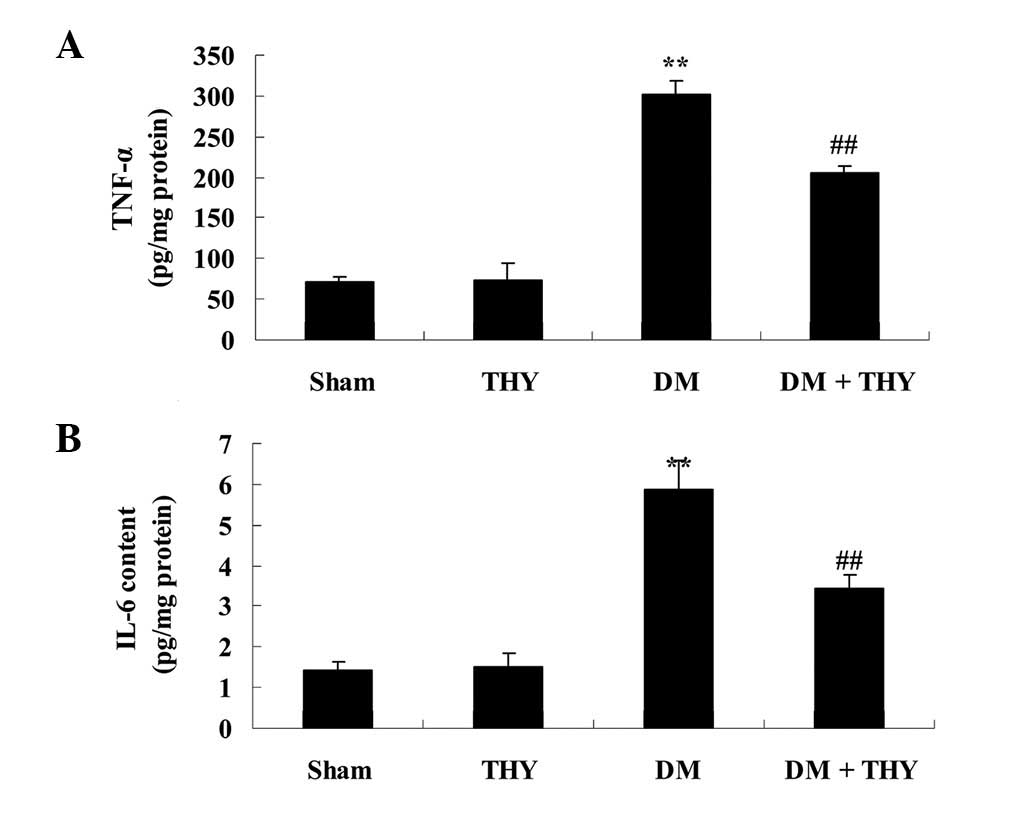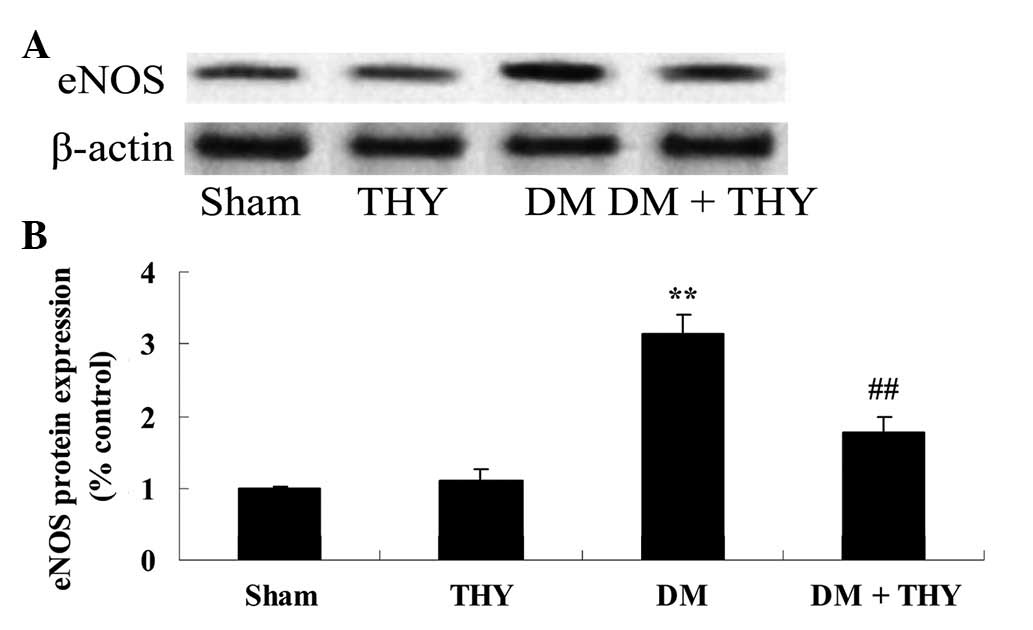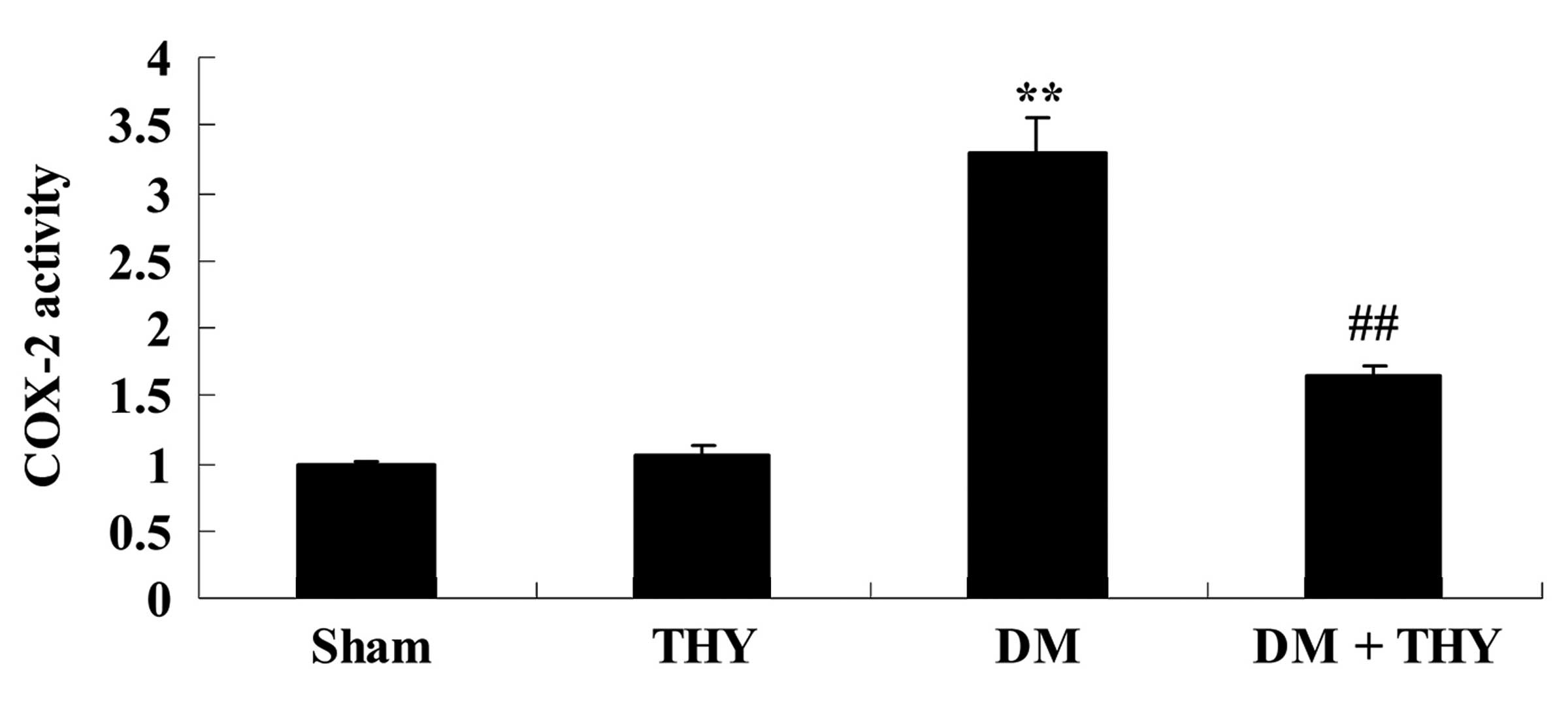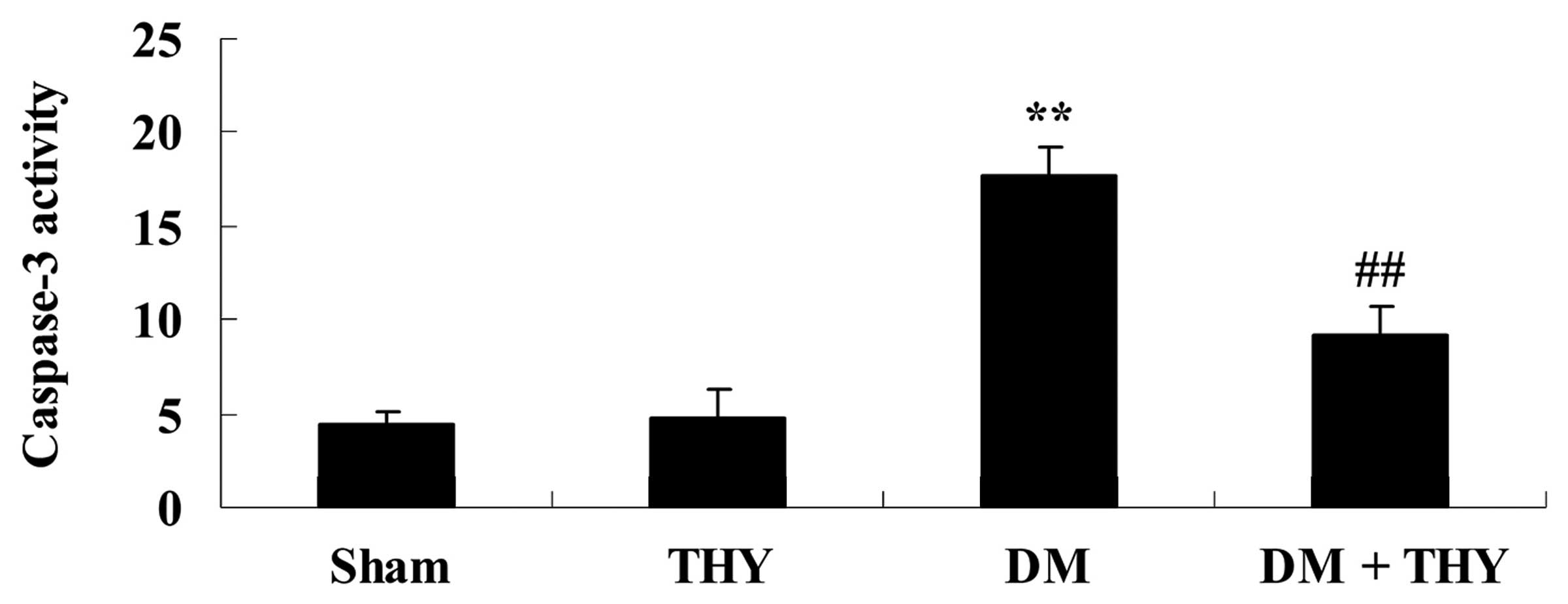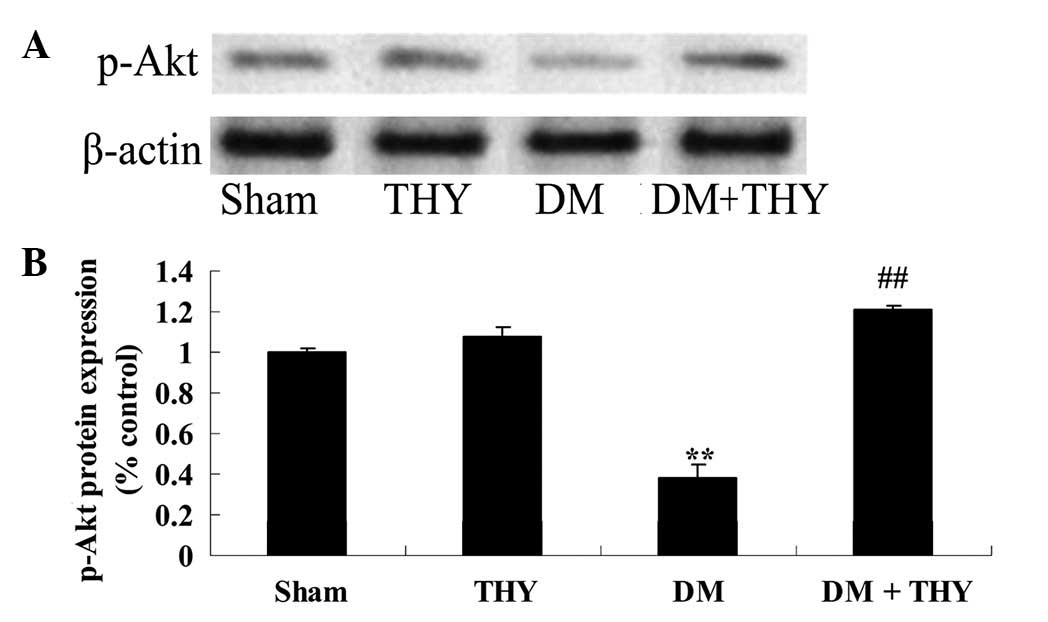|
1
|
Yin L, Cai WJ, Chang XY, Li J, Su XH, Zhu
LY, Wang XL and Sun K: Association between fetuin-A levels with
insulin resistance and carotid intima-media thickness in patients
with new-onset type 2 diabetes mellitus. Biomed Rep. 2:839–842.
2014.PubMed/NCBI
|
|
2
|
Cheung KK, Luk AO, So WY, Ma RC, Kong AP,
Chow FC and Chan JC: Testosterone level in men with type 2 diabetes
mellitus and related metabolic effects: A review of current
evidence. J Diabetes Investig. 6:112–123. 2015. View Article : Google Scholar : PubMed/NCBI
|
|
3
|
Li MZ, Su L, Liang BY, Tan JJ, Chen Q,
Long JX, Xie JJ, Wu GL, Yan Y, Guo XJ and Gu L: Trends in
prevalence, awareness, treatment, and control of diabetes mellitus
in mainland china from 1979 to 2012. Int J Endocrinol.
2013:7531502013. View Article : Google Scholar : PubMed/NCBI
|
|
4
|
Guo J, Whittemore R and He GP: The
relationship between diabetes self-management and metabolic control
in youth with type 1 diabetes: An integrative review. J Adv Nurs.
67:2294–2310. 2011. View Article : Google Scholar : PubMed/NCBI
|
|
5
|
Peng D, Wang J, Zhang R, Tang S, Jiang F,
Chen M, Yan J, Sun X, Wang T, Wang S, et al: C-reactive protein
genetic variant is associated with diabetic retinopathy in Chinese
patients with type 2 diabetes. BMC Endocr Disord. 15:82015.
View Article : Google Scholar : PubMed/NCBI
|
|
6
|
Huang CQ, Ma GZ, Tao MD, Ma XL, Feng J and
Liu QX: The relationship between renal injury and change in vitamin
D metabolism in aged rats with insulin resistance or type 2
diabetes mellitus. J Int Med Res. 36:289–295. 2008. View Article : Google Scholar : PubMed/NCBI
|
|
7
|
Göbl CS, Brannath W, Bozkurt L, Handisurya
A, Anderwald C, Luger A, Krebs M, Kautzky-Willer A and Bischof MG:
Sex-specific differences in glycemic control and cardiovascular
risk factors in older patients with insulin-treated type 2 diabetes
mellitus. Gend Med. 7:593–599. 2010. View Article : Google Scholar
|
|
8
|
Rutter MK and Nesto RW: Ischemia imaging
and plaque imaging in diabetes: Complementary tools to improve
cardiovascular risk management: Response to Raggi et al. Diabetes
Care;29:1187author reply 1188. 2006.PubMed/NCBI
|
|
9
|
Aycan IO, Tokgöz O, Tüfek A, Alabalık U,
Evliyaoğlu O, Turgut H, Çelik F and Güzel A: The use of
thymoquinone in nephrotoxicity related to acetaminophen. Int J
Surg. 13:33–37. 2015. View Article : Google Scholar
|
|
10
|
Khan MA, Anwar S, Aljarbou AN, Al-Orainy
M, Aldebasi YH, Islam S and Younus H: Protective effect of
thymoquinone on glucose or methylglyoxal-induced glycation of
superoxide dismutase. Int J Biol Macromol. 65:16–20. 2014.
View Article : Google Scholar : PubMed/NCBI
|
|
11
|
Han J, Wang LU, Bian H, Zhou X and Ruan C:
Effects of paroxetine on spatial memory function and protein kinase
C expression in a rat model of depression. Exp Ther Med.
10:1489–1492. 2015.PubMed/NCBI
|
|
12
|
Cabrera SM, Rigby MR and Mirmira RG:
Targeting regulatory T cells in the treatment of type 1 diabetes
mellitus. Curr Mol Med. 12:1261–1272. 2012. View Article : Google Scholar : PubMed/NCBI
|
|
13
|
De la Sierra A: Angiotensin receptor
blockers in hypertension and cardiovascular diseases. Cardiovasc
Hematol Agents Med Chem. 4:67–73. 2006. View Article : Google Scholar : PubMed/NCBI
|
|
14
|
Hassan MH and Abd-Allah GM: Effects of
metformin plus gliclazide versus metformin plus glimepiride on
cardiovascular risk factors in patients with type 2 diabetes
mellitus. Pak J Pharm Sci. 28:1723–1730. 2015.
|
|
15
|
Trost S, Pratley R and Sobel B: Impaired
fibrinolysis and risk for cardiovascular disease in the metabolic
syndrome and type 2 diabetes. Curr Diab Rep. 6:47–54. 2006.
View Article : Google Scholar : PubMed/NCBI
|
|
16
|
Forst T, Anastassiadis E, Diessel S,
Löffler A and Pfützner A: Effect of linagliptin compared with
glimepiride on postprandial glucose metabolism, islet cell function
and vascular function parameters in patients with type 2 diabetes
mellitus receiving ongoing metformin treatment. Diabetes Metab Res
Rev. 30:582–589. 2014. View Article : Google Scholar : PubMed/NCBI
|
|
17
|
El-Mahmoudy A, Shimizu Y, Shiina T,
Matsuyama H, El-Sayed M and Takewaki T: Successful abrogation by
thymoquinone against induction of diabetes mellitus with
streptozotocin via nitric oxide inhibitory mechanism. Int
Immunopharmacol. 5:195–207. 2005. View Article : Google Scholar
|
|
18
|
Pari L and Sankaranarayanan C: Beneficial
effects of thymo-quinone on hepatic key enzymes in
streptozotocin-nicotinamide induced diabetic rats. Life Sci.
85:830–834. 2009. View Article : Google Scholar : PubMed/NCBI
|
|
19
|
Li X, Zhao H, Wang Q, Liang H and Jiang X:
Fucoidan protects ARPE-19 cells from oxidative stress via
normalization of reactive oxygen species generation through the
Ca2+-dependent ERK signaling pathway. Mol Med
Rep. 11:3746–3752. 2015.PubMed/NCBI
|
|
20
|
Matsunami T, Sato Y, Sato T, Ariga S,
Shimomura T and Yukawa M: Oxidative stress and gene expression of
antioxidant enzymes in the streptozotocin-induced diabetic rats
under hyperbaric oxygen exposure. Int J Clin Exp Pathol. 3:177–188.
2009.
|
|
21
|
Huang A, Yang YM, Feher A, Bagi Z, Kaley G
and Sun D: Exacerbation of endothelial dysfunction during the
progression of diabetes: Role of oxidative stress. Am J Physiol
Regul Integr Comp Physiol. 302:R674–R681. 2012. View Article : Google Scholar : PubMed/NCBI
|
|
22
|
Farag MM, Ahmed GO, Shehata RR and Kazem
AH: Thymoquinone improves the kidney and liver changes induced by
chronic cyclosporine A treatment and acute renal
ischaemia/reperfusion in rats. J Pharm Pharmacol. 67:731–739. 2015.
View Article : Google Scholar : PubMed/NCBI
|
|
23
|
Mabrouk A and Ben Cheikh H: Thymoquinone
supplementation reverses lead-induced oxidative stress in adult rat
testes. Gen Physiol Biophys. 34:65–72. 2015. View Article : Google Scholar
|
|
24
|
Yin L, Cai WJ, Zhu LY, Li J, Su XH, Wang
XL, Chang XY and Sun K: Association of plasma Fetuin-A and clinical
characteristics in patients with new-onset type 2 diabetes
mellitus. Int J Clin Exp Med. 8:991–999. 2015.PubMed/NCBI
|
|
25
|
Javed F, Al-Kheraif AA, Salazar-Lazo K,
Yanez-Fontenla V, Aldosary KM, Alshehri M, Malmstrom H and Romanos
GE: Periodontal inflammatory conditions among smokers and
never-smokers with and without Type 2 diabetes mellitus. J
Periodontol. 86:839–846. 2015. View Article : Google Scholar : PubMed/NCBI
|
|
26
|
Schäffler A, Zeitoun M, Wobser H, Buechler
C, Aslanidis C and Herfarth H: Frequency and significance of the
novel single nucleotide missense polymorphism Val109Asp in the
human gene encoding omentin in Caucasian patients with type 2
diabetes mellitus or chronic inflammatory bowel diseases.
Cardiovasc Diabetol. 6:32007. View Article : Google Scholar : PubMed/NCBI
|
|
27
|
Periyanayagam S, Arumugam G, Ravikumar A
and Ganesan VS: Thymoquinone ameliorates NLRP3-mediated
inflammation in the pancreas of albino Wistar rats fed ethanol and
high-fat diet. J Basic Clin Physiol Pharmacol. 26:623–632. 2015.
View Article : Google Scholar : PubMed/NCBI
|
|
28
|
Rifaioglu MM, Nacar A, Yuksel R, Yonden Z,
Karcioglu M, Zorba OU, Davarci I and Sefil NK: Antioxidative and
anti-inflammatory effect of thymoquinone in an acute Pseudomonas
prostatitis rat model. Urol Int. 91:474–481. 2013. View Article : Google Scholar : PubMed/NCBI
|
|
29
|
Sun N, Wang H and Wang L: Vaspin
alleviates dysfunction of endo-thelial progenitor cells induced by
high glucose via PI3K/Akt/eNOS pathway. Int J Clin Exp Pathol.
8:482–489. 2015.
|
|
30
|
Sorrentino SA, Bahlmann FH, Besler C,
Müller M, Schulz S, Kirchhoff N, Doerries C, Horváth T, Limbourg A,
Limbourg F, et al: Oxidant stress impairs in vivo
reendothelialization capacity of endothelial progenitor cells from
patients with type 2 diabetes mellitus: Restoration by the
peroxisome proliferator-activated receptor-gamma agonist
rosiglitazone. Circulation. 116:163–173. 2007. View Article : Google Scholar : PubMed/NCBI
|
|
31
|
Tang Y, Jacobi A, Vater C, Zou X and
Stiehler M: Salvianolic acid B protects human endothelial
progenitor cells against oxidative stress-mediated dysfunction by
modulating Akt/mTOR/4EBP1, p38 MAPK/ATF2, and ERK1/2 signaling
pathways. Biochem Pharmacol. 90:34–49. 2014. View Article : Google Scholar : PubMed/NCBI
|
|
32
|
Wang T, Mao X, Li H, Qiao S, Xu A, Wang J,
Lei S, Liu Z, Ng KF, Wong GT, et al: N-Acetylcysteine and
allopurinol up-regulated the Jak/STAT3 and PI3K/Akt pathways via
adiponectin and attenuated myocardial postischemic injury in
diabetes. Free Radic Biol Med. 63:291–303. 2013. View Article : Google Scholar : PubMed/NCBI
|
|
33
|
Idris-Khodja N and Schini-Kerth V:
Thymoquinone improves aging-related endothelial dysfunction in the
rat mesenteric artery. Naunyn Schmiedebergs Arch Pharmacol.
385:749–758. 2012. View Article : Google Scholar : PubMed/NCBI
|
|
34
|
Kundu JK, Liu L, Shin JW and Surh YJ:
Thymoquinone inhibits phorbol ester-induced activation of NF-κB and
expression of COX-2, and induces expression of cytoprotective
enzymes in mouse skin in vivo. Biochem Biophys Res Commun.
438:721–727. 2013. View Article : Google Scholar : PubMed/NCBI
|
|
35
|
Yu SM and Kim SJ: The thymoquinone-induced
production of reactive oxygen species promotes dedifferentiation
through the ERK pathway and inflammation through the p38 and PI3K
pathways in rabbit articular chondrocytes. Int J Mol Med.
35:325–332. 2015.
|















